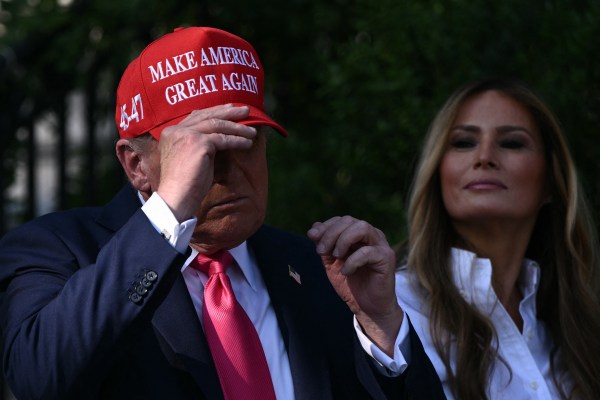On Tuesday, Israel signed two historic peace agreements with Bahrain and the United Arab Emirates in a major step toward greater diplomacy in the Middle East. Though the Trump administration played a crucial role in brokering both peace deals—with the signing ceremonies themselves taking place in the White House—media coverage of the deals has been scarce, begrudging, and dismissive of the president’s involvement in the negotiations. How much credit should the Trump administration get for facilitating the deal? And more importantly, will other countries follow suit in normalizing relations with Israel? “The UAE is like a beta test of the bigger deal with Saudi Arabia if it is to come,” David explains on today’s episode. “This is sort of dipping the toe in the waters.” As we inch toward November 3, will this deal be a major selling point for Trump’s re-election campaign? According to Sarah, probably not. “Our politics goes in cycles of foreign policy having domestic policy relevance, normally when we’re talking about having our people overseas,” Sarah explains, “This is not one of those elections.” Much to the Trump administration’s chagrin, this deal is simply not getting the coverage it deserves and many Americans who are more focused on domestic issues may never even hear about it at all. After a foray into the foreign policy world, our podcast hosts discuss The Big Ten’s return, the conspiratorial trajectory of American politics, many Republicans’ conviction that Joe Biden is nothing but a cardboard cutout for the progressive far-left, and … Grover Cleveland!
Show Notes:
–The Remnant episode with Ken Pollack, yesterday’s Dispatch Live, and “Steve Bannon Is Behind Bogus Study That China Created COVID” by Adam Rawnsley in The Daily Beast.
–Make sure to take advantage of The Dispatch 30 Day free trial.
See omnystudio.com/listener for privacy information.






Please note that we at The Dispatch hold ourselves, our work, and our commenters to a higher standard than other places on the internet. We welcome comments that foster genuine debate or discussion—including comments critical of us or our work—but responses that include ad hominem attacks on fellow Dispatch members or are intended to stoke fear and anger may be moderated.
With your membership, you only have the ability to comment on The Morning Dispatch articles. Consider upgrading to join the conversation everywhere.